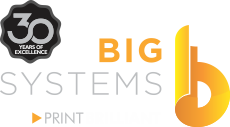System Workflow Training
Custom User Training
Available onsite at your facility with your equipment, team and workflow; or as a custom-tailored virtual training event. Onsite sessions allow for each team member to gain "hands-on experience" using their exact equipment and software, as well as interact with our technician and learn operation, configuration and maintenance of their equipment. Onsite user training may incur additional travel expenses, depending on location specifics, and duration of training desired. System workflow training involves combination of equipment and software, including printers, cutters and other finishing hardware or materials.
Virtual Training Sessions
Virtual training offers several benefits, including:
Accessibility: Virtual training allows individuals from different geographical locations to participate without the need for travel. This accessibility makes it easier for people to attend training sessions, regardless of their location or physical abilities.
Flexibility: Virtual training provides flexibility in terms of scheduling. Participants can often choose from a variety of training sessions and join at their convenience, accommodating their work or personal commitments.
Cost savings: Virtual training eliminates the need for travel expenses, such as transportation, accommodation, and meals. It also reduces costs associated with renting physical training venues. This makes virtual training a more cost-effective option, especially for organizations with remote teams or participants spread across different locations.
Time efficiency: Virtual training minimizes the time spent on logistics, such as travel arrangements and setup. Participants can join training sessions with just a few clicks, eliminating the need for commuting. Additionally, virtual training sessions can be recorded and made available for on-demand access, allowing participants to review or catch up on missed content at their own pace.
Increased engagement: Virtual training often incorporates interactive features, such as live chat, polls, and breakout rooms, which can enhance participant engagement. These features facilitate active participation, collaboration, and real-time feedback, leading to a more engaging learning experience.
Scalability: Virtual training can easily accommodate large numbers of participants simultaneously. Organizations can conduct training sessions for large groups without the limitations of physical space, making it scalable and efficient for training a large workforce or customer base.
Measurement: Virtual training often allows for tracking participant progress and collecting analytics. This data can provide insights into participants' performance, engagement, and areas that need improvement. It enables organizations to assess the effectiveness of the training program and make data-driven decisions for future activities.
Personalization: Virtual training can be tailored to individual needs more easily. Participants can often access pre-recorded modules or resources based on their skill level or specific learning goals. This flexibility allows individuals to focus on areas they find most relevant or challenging, enhancing the overall learning experience.
Environmentally friendly: By eliminating the need for travel, virtual training reduces carbon emissions associated with transportation. It contributes to a more sustainable approach to learning and aligns with organizations' environmental goals.
Overall, virtual training offers convenience, cost savings, engagement, scalability, and personalized learning experiences, making it an increasingly popular choice for individuals and organizations seeking efficient and effective training solutions.





